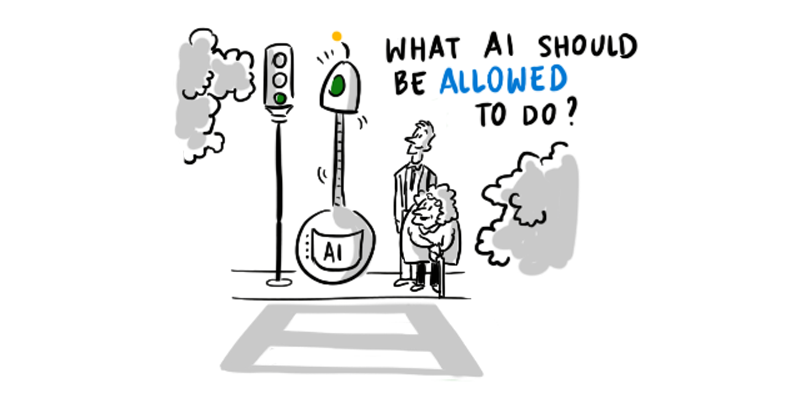In the rapidly evolving field of Natural Language Processing (NLP), the next 12 months are set to bring groundbreaking advancements that will significantly enhance our interactions with AI and revolutionize the way we communicate. These advancements will empower AI systems with contextual understanding, multilingual capabilities, improved sentiment analysis, and ethical considerations, opening up new possibilities in various industries and daily life.

- Contextual Understanding and Conversational AI
Imagine having a chat with a virtual assistant that remembers your past interactions and picks up from where you left off. NLP models will become more context-aware, enabling conversational AI to maintain coherent and natural dialogues with users. For instance, a customer service chatbot will comprehend the history of a customer’s support inquiries, allowing it to provide more personalized and accurate solutions. Similarly, a language learning app will adapt to an individual’s proficiency level, tailoring lessons and exercises based on previous interactions. Contextual understanding in NLP will elevate user experiences and lead to more effective and engaging human-machine conversations.
These same items that will give it power can also be the reason it might take longer to get really good. A human can be good at forgetting details that don’t matter. A machine can’t use that same reasoning, at least not to the same level, not yet.
- Multilingual and Cross-lingual NLP
As NLP advances in multilingual and cross-lingual capabilities, language barriers will no longer hinder communication. For instance, imagine attending a virtual international conference where real-time translation seamlessly converts speakers’ words into the audience’s native language. Additionally, cross-lingual NLP will enable social media platforms to accurately translate and analyze posts in various languages, fostering global connectivity and understanding. Businesses will also benefit from multilingual NLP, as e-commerce platforms can cater to customers worldwide, providing product information and support in their native languages. The possibilities of cross-lingual NLP extend to education, diplomacy, healthcare, and numerous other domains, making the world a more connected place.
- Improved Sentiment Analysis and Emotion Recognition
Soon, NLP will make significant strides in understanding human emotions and sentiments. For instance, a social media monitoring tool can accurately gauge public sentiment towards a product launch, enabling companies to respond proactively to feedback and manage their reputation effectively. Emotion recognition in voice assistants will also take a leap forward, helping virtual therapists to detect emotional distress in their users and offer appropriate support. Moreover, sentiment analysis in customer reviews will become more nuanced, allowing businesses to identify specific aspects of their products or services that elicit positive or negative responses. By harnessing improved sentiment analysis and emotion recognition, NLP will empower AI systems to be more empathetic and responsive, leading to enhanced user experiences and personalized interactions.
Ive done lots of work on this in the past. One aspect we found in analyzing social media analytics was that if you tried to find out the sentiment of a single post, human slang and emotion would affect the validity of the sentiment. But, if you looked at all the surrounding posts and comments, you could more accurately define the sentiment.
Ex: “This is the bomb” – A computer, in isolation, would call this neutral or negative, when in fact, it’s positive.
But evaluating all the posts around it with their comments, the overall sense would be registered as positive.
It’s going to be fun watching this unfold. There are amazing applications of this area of AI. Some might say that is also where the most “human” aspects of AI will emerge.
- Responsible AI: Ethical Considerations and Bias Mitigation
As NLP technologies become more pervasive, the importance of responsible AI practices will be paramount. For example, a recruitment AI platform will be designed to mitigate bias in job candidate selection, ensuring fair opportunities for all applicants. NLP models used in legal contexts will be scrutinized for potential biases in language processing, safeguarding against unfair judgments. Additionally, social media algorithms will incorporate ethical guidelines to avoid amplifying misinformation or promoting harmful content. Responsible AI practices will involve transparency in AI decision-making, diverse and inclusive datasets, and user empowerment in understanding how AI models work. By addressing ethical considerations and mitigating biases, NLP will foster trust and confidence in AI technologies, enabling their widespread adoption for the betterment of society.

I personally believe that bias will not be able to be completely filtered out. It learns on previous interactions and humans are biased. One of the things that make us human is our personality and our beliefs. Given all the interactions, AI will need to be able to reconcile that info and turn that into what it believes to be the truth. Not based on quantitative numbers, but weighing all the facts.
If this existed in the 1500s, AI would be saying that the Sun revolved around the earth based on the consensus of the scientific community. It is possible that it would have a different conclusion if it objectively looked at the facts. But therein lies the challenge.
We will all witness remarkable advancements in Natural Language Processing (NLP) that will reshape human-machine interactions and communication across languages. Contextual understanding will lead to more natural and meaningful conversations with virtual assistants, while multilingual capabilities will break down language barriers, fostering global connectivity. Improved sentiment analysis and emotion recognition will enhance AI systems’ empathetic capabilities, benefiting industries like customer service and mental health support. At the same time, responsible AI practices will ensure the ethical and fair deployment of NLP technologies across various domains.
As we embrace these exciting advancements, the future of NLP holds great promise in enriching our lives and transforming the way we interact with AI-driven applications.




